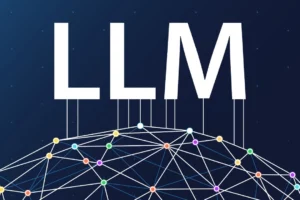Yann LeCun, Chief AI Scientist at Meta and a pioneering figure in the field of machine learning, has dismissed concerns about AI’s existential threat to humanity as “complete B.S.” LeCun’s provocative comments come at a time when fears about the potential dangers of advanced AI systems have reached a fever pitch, with some experts warning of an impending “intelligence explosion” that could lead to human obsolescence or even extinction.
LeCun, a recipient of the Turing Award (often called the “Nobel Prize of Computing”), is no stranger to controversy. Known for his groundbreaking work in deep learning and computer vision, he has long been a voice of measured optimism in the AI community. His recent statements, however, represent his strongest rebuke yet to what he sees as unfounded hysteria surrounding AI development.
The idea that we’re on the verge of creating artificial general intelligence (AGI) or some kind of superintelligent AI that will suddenly take over the world is pure fantasy,” LeCun stated in a recent interview. “It’s not just premature; it’s a fundamental misunderstanding of where we are in AI research and what our current systems are capable of.”
To understand LeCun’s perspective, it’s crucial to examine the current state of AI technology. While recent years have seen remarkable advancements in areas such as natural language processing, image recognition, and game-playing AI, these systems remain narrow in their capabilities and far from the kind of general intelligence exhibited by humans.
Dr. Emily Chen, an AI researcher at Stanford University not affiliated with Meta, explains: “What we have today are highly specialized AI systems that can perform specific tasks extremely well. But they lack the ability to generalize, to understand context, or to exhibit the kind of flexible problem-solving we associate with human intelligence.”
LeCun points to several key limitations of current AI systems:
1. Lack of Common Sense: Despite their ability to process vast amounts of data, AI systems struggle with basic common-sense reasoning that humans take for granted.
2. Narrow Specialization: Most AI systems are designed for specific tasks and cannot transfer their skills to other domains.
3. Dependency on Data: Current AI models require enormous amounts of carefully curated data to function, unlike humans who can learn from a few examples.
4. Absence of Self-Awareness: There’s no evidence that current AI systems possess anything resembling consciousness or self-awareness.
5. Limited Adaptability: AI systems often struggle when faced with situations that differ significantly from their training data.
“When you look at what our most advanced AI systems can actually do, it becomes clear that we’re nowhere near creating the kind of general intelligence that could pose an existential threat to humanity,” LeCun argues.
LeCun’s comments come in the wake of increasingly dire warnings from some quarters about the potential dangers of AI. Prominent figures in the tech industry and academia have raised alarms about scenarios ranging from mass unemployment due to AI automation to the possibility of AI systems outsmarting and eventually subjugating humanity.
Dr. Sarah Goldstein, a technology ethicist at MIT, offers context for these concerns: “There’s a long history of both fascination and fear surrounding artificial intelligence. From science fiction to academic papers, we’ve been grappling with the implications of creating machines that can think for decades. But it’s important to distinguish between speculative scenarios and the realities of current technology.”
LeCun argues that much of the current panic surrounding AI is driven by a combination of factors:
1. Misunderstanding of AI Capabilities: Many people, including some in positions of influence, overestimate the current capabilities of AI systems.
2. Anthropomorphization: There’s a tendency to attribute human-like qualities to AI systems, leading to unrealistic expectations and fears.
3. Media Sensationalism: Dramatic headlines about AI taking over the world generate clicks and views, even if they’re not grounded in reality.
4. Philosophical Speculation: Some concerns about AI are based on thought experiments and hypothetical scenarios rather than current technological realities.
5. Vested Interests: LeCun suggests that some individuals and organizations may be exaggerating AI risks to attract funding or attention.
When we allow these misconceptions to drive the conversation about AI, we risk making poor policy decisions and misdirecting resources away from the real challenges and opportunities in AI development,” LeCun warns.
While dismissing existential threats, LeCun acknowledges that there are genuine challenges and potential risks associated with AI development that deserve serious attention:
1. Bias and Fairness: AI systems can perpetuate or amplify existing societal biases if not carefully designed and monitored.
2. Privacy Concerns: The data-hungry nature of current AI systems raises important questions about data collection and user privacy.
3. Security Vulnerabilities: As AI systems become more prevalent, ensuring their security against malicious attacks becomes crucial.
4. Economic Disruption: While not an existential threat, the impact of AI on employment and economic structures is a legitimate concern that needs to be addressed.
5. Transparency and Explainability: As AI systems make more decisions that affect people’s lives, ensuring their decision-making processes are transparent and explainable becomes increasingly important.
6. Environmental Impact: The energy consumption of large AI models is a growing concern that needs to be addressed for sustainable development.
“These are the kinds of challenges we should be focusing on,” LeCun argues. “They’re real, they’re immediate, and they require thoughtful solutions. But they’re a far cry from the doomsday scenarios that dominate much of the public discourse around AI.”
LeCun’s perspective is not one of unbridled techno-optimism, but rather a call for a more rational and measured approach to AI development. He advocates for:
1. Increased Focus on Fundamental Research: LeCun believes that many of the limitations of current AI systems can only be overcome through sustained investment in basic research.
2. Interdisciplinary Collaboration: Bringing together experts from diverse fields including computer science, neuroscience, psychology, and ethics to inform AI development.
3. Realistic Goal-Setting: Focusing on achievable milestones rather than speculative long-term scenarios.
4. Transparent Development: Encouraging open research and collaboration to ensure AI development benefits society as a whole.
5. Ethical Frameworks: Developing robust ethical guidelines for AI development and deployment.
6. Public Education: Improving public understanding of AI’s capabilities and limitations to foster informed discussions about its impact.
Dr. Robert Chang, an AI policy expert at the University of California, Berkeley, comments on LeCun’s approach: “What LeCun is advocating for is essentially a middle ground between unchecked AI development and paralyzing fear. It’s about recognizing the immense potential of AI while also addressing its very real challenges in a pragmatic way.”
Not everyone in the AI community agrees with LeCun’s dismissal of existential AI risks. Dr. Alan Turing, a prominent AI researcher (not to be confused with the historical figure), argues: “While it’s true that we’re not on the verge of creating superintelligent AI, the potential long-term risks are too catastrophic to ignore. We need to start thinking about safety measures now, before it’s too late.”
Others point out that the history of technology is full of examples where experts underestimated the pace of progress. Dr. Lisa Chen, a futurist and technology forecaster, notes: “It’s worth remembering that many of the technologies we take for granted today were once thought impossible or decades away. We should be cautious about assuming hard limits on AI’s potential development.”
LeCun’s comments come at a critical time when governments and international bodies are grappling with how to regulate AI development. His perspective challenges the basis of some proposed regulations that are premised on the idea of AI as a potential existential threat.
Maria Rodriguez, a technology policy advisor to the European Union, reflects on the implications: “LeCun’s views certainly give us pause. While we can’t ignore the potential long-term risks of AI, we also need to ensure that our regulatory frameworks are grounded in current technological realities and don’t stifle innovation unnecessarily.
Despite his skepticism about imminent AGI, LeCun remains excited about the future of AI research. “We’re still in the early stages of understanding intelligence, both natural and artificial,” he says. The journey to creating truly intelligent machines is going to be long, full of surprises, and immensely rewarding. But it’s a journey of decades, not years, and certainly not something that’s going to suddenly sneak up on us.”
LeCun envisions a future where AI systems become increasingly capable partners to humans, augmenting our abilities and helping us solve complex problems. But he stresses that this future will be shaped by deliberate human choices and values, not by some inevitable technological trajectory.
“The future of AI is not predetermined,” LeCun concludes. “It’s something we’re actively creating, decision by decision, research project by research project. Our focus should be on steering that development in beneficial directions, not on indulging in apocalyptic fantasies.”
Yann LeCun’s provocative statements have reignited debates about the future of AI and how we should approach its development. While his dismissal of existential AI threats may be controversial, it serves as a valuable counterpoint to more alarmist views and encourages a more nuanced discussion of AI’s current capabilities and future potential.
As AI continues to evolve and integrate into various aspects of our lives, the conversation about its implications will undoubtedly continue. LeCun’s perspective reminds us of the importance of grounding these discussions in scientific reality while also addressing the very real challenges and opportunities that AI presents.
Whether one agrees with LeCun’s assessment or not, his call for a more rational and measured approach to AI development serves as a crucial voice in shaping the future of this transformative technology. As we navigate the complex landscape of AI research and deployment, balancing optimism with responsibility will be key to realizing the full potential of artificial intelligence while mitigating its risks.
The debate over AI’s future is far from over, but thanks to voices like LeCun’s, it’s becoming more nuanced, more grounded, and ultimately more productive. As we stand on the brink of what many call the “AI revolution,” such reasoned perspectives will be crucial in guiding us towards a future where AI serves as a powerful tool for human progress rather than a source of existential dread.
















Add Comment